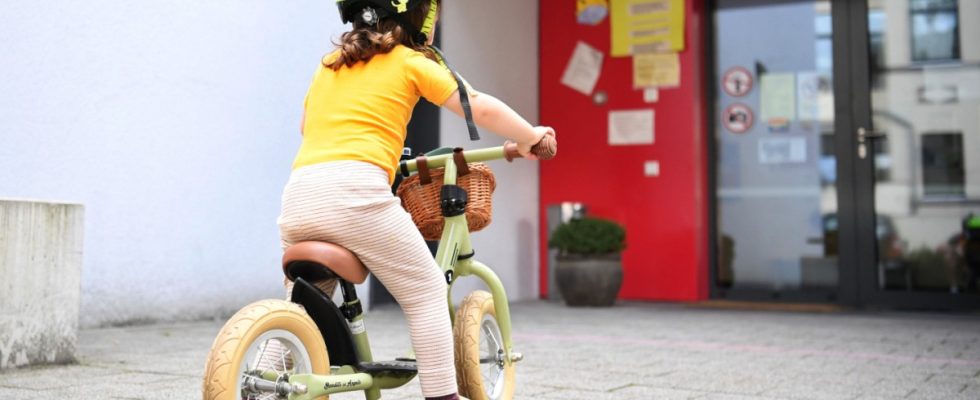More than half of the working parents whose children attend a day care center or day care center have experienced in the past three months that a facility has been closed or only opened for a short time due to a lack of staff. The majority of parents state that they are burdened by the closures, a third have reduced their own employment due to the circumstances. This is shown by a current, previously unpublished survey by the Economic and Social Science Institute of the Hans Böckler Foundation (WSI).
Bettina Kohlrausch, head of the WSI, speaks of a “gap between expectations and reality” when it comes to the compatibility of work and family, especially for women. This is the first data to confirm how much the lack of staff in the day-care center landscape is now reflected in the everyday life of families.
According to the representative survey, parents largely compensated for the loss of care themselves, for example by working overtime or taking vacation. Almost half of the affected parents were able to turn to relatives or friends, only five percent hired additional private care. The finding of the WSI coincides with information from the German Kita Association. According to this, 69 percent of the providers have started to cope with staff shortages by reducing opening hours. Educational offers such as excursions or sports are being reduced in numerous facilities, so the shortage also affects the education of the youngest children.
The failures have consequences for the economy
The fact that a third of the affected parents feel forced to reduce their own working hours has macroeconomic consequences: The number of skilled workers on the labor market is continuing to decrease, criticizes the economist Wido Geis-Thöne from the German Economic Institute. Ensuring and improving the compatibility of work and family is a declared goal of the federal government. In particular, working mothers should be encouraged to work to a greater extent.
Federal Family Minister Lisa Paus emphasizes the “huge potential of working mothers”, which could alleviate the shortage of skilled workers if women had more time for their jobs. Three quarters of mothers in Germany are employed, but the majority work part-time, especially when there are younger children in the house.
The WSI survey also shows that mothers in particular are responsible for the shortage of skilled workers in the educational field. 63 percent of the male respondents stated that the partner had stepped in, 33 percent of the women named the partner as the one who took over. “Even during the pandemic, we observed that the burden on mothers had increased enormously,” says Kohlrausch.
Since 2020, the Hans Böckler Foundation has been conducting regular surveys on the workload in the population as part of its labor force panel. As early as March, a significant loss of trust in politics among mothers was noted. Kohlrausch fears that this will continue: “The basis on which many families organize their everyday life is no longer guaranteed.” Politicians are not doing their part here, a training offensive is needed to attract new specialists. Geis-Thöne from the DIW calls for the use of less pedagogically trained staff.
The survey expressly refers to the period after the last corona protection measures expired. During the first year of the pandemic, childcare facilities across the country were closed several times for weeks. Until the summer of 2022, facilities in many federal states were obliged to temporarily close if infections were detected. It is known that the pandemic has led to a loss of skilled workers in the educational field, and many educators changed jobs due to the risk of infection.
According to expert estimates, there is currently a shortage of around 98,600 educators in the daycare sector, and by 2030 there could be over 230,000 vacancies.

